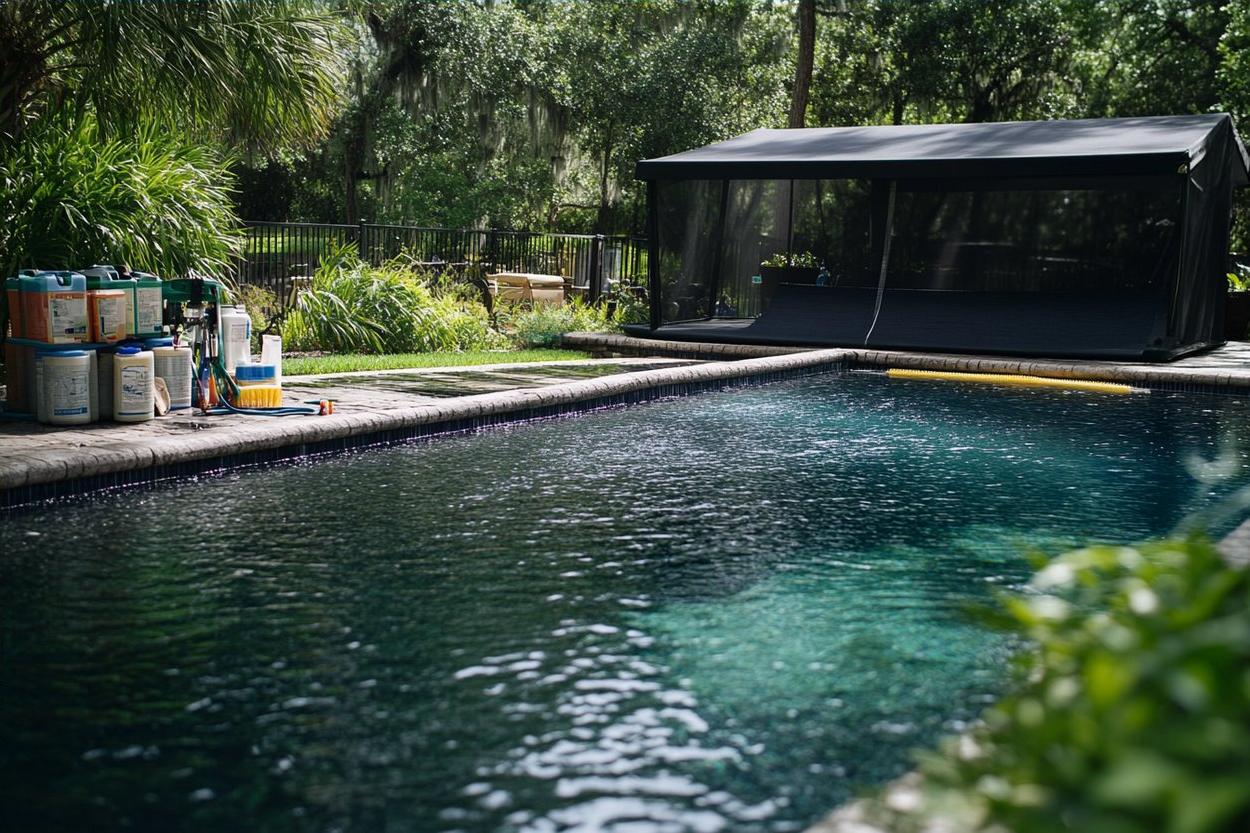Pool Covers: Protecting Water, Safety, and Your Backyard
A quality pool cover does more than hide your swimming pool when it's not in use — it protects water quality, improves safety, reduces evaporation, and can lower maintenance time. Whether you own a small backyard pool or a larger in-ground installation, understanding types of covers, how they work, and what to consider can help you choose the right solution for seasons, safety, and convenience.

What is a pool cover and why use one?
A pool cover is a barrier that sits over or in your pool to block debris, conserve heat, and add safety. Covers range from simple mesh or solar blankets to robust solid covers and integrated systems. Homeowners use covers to minimize leaves, dirt, and insects entering the water, reducing filtration and chemical needs. Covers also extend the usable life of pool components by keeping harsh debris and UV exposure at bay, making regular pool care easier and less time-consuming.
How do automatic pool covers work?
Automatic pool covers roll out or retract with a motorized system mounted at one end of the pool. With the flip of a switch or remote control, the cover travels on tracks and fully seals the pool surface. Automatic pool cover systems can be electric or low-voltage and are designed for convenience, fast deployment, and enhanced safety by preventing accidental falls. Proper installation and regular inspection of the motor, tracks, and fabric or slats ensure smooth operation and long-term reliability.
Choosing the right cover for your swimming pool
Selecting the right cover depends on pool type, climate, and usage. For seasonal protection, a winter solid cover may be best; for daily debris control, mesh or solar blankets work well. In-ground pools often support heavy-duty safety covers or automatic slat systems, while above-ground pools may use fitted winter covers or floating solar covers. Consider durability, UV resistance, safety ratings, and compatibility with existing decks or coping. Matching the cover to the shape and dimensions of your swimming pool ensures a tighter fit and better performance.
Benefits for your backyard and safety
A fitted cover improves backyard aesthetics while keeping the immediate area cleaner. Safety covers are rated to hold weight and can prevent accidental falls by children and pets, offering peace of mind. Covers also reduce the frequency of cleaning around the pool, meaning fewer leaves and debris blown into the yard end up in the water. When integrated with landscaping and fencing, a properly chosen cover contributes to a safer, more attractive backyard environment.
Water conservation, maintenance, and seasonal use
Covers play a significant role in reducing water loss through evaporation, especially in hot, dry climates. By limiting exposure to sun and wind, covers conserve water and reduce the need to refill the pool, which is both cost-effective and environmentally responsible. They also help maintain chemical balance, lowering sanitizer consumption. For seasonal use, covers designed for winterization will protect water from contaminants and reduce spring cleanup time, whereas solar covers can help warm the water and prolong swim seasons in cooler climates.
Installation, maintenance, and local services
Professional installation ensures automatic pool cover mechanisms and safety anchors are fitted correctly. Local services in your area typically handle measurements, motor mounting, and track alignment for automatic systems, plus fabric tensioning for solid covers. Routine maintenance includes checking straps and anchors, cleaning the cover surface, lubricating mechanical parts, and watching for wear from UV exposure. Many suppliers offer inspection plans or seasonal take-down and storage services to extend cover life and performance.
A final consideration is matching long-term needs with upfront convenience: automatic covers cost more initially but add daily ease and safety, while manual or solar options are less expensive but require more handling. Regardless of choice, treat the cover as part of your pool system and schedule regular checks to keep water quality and safety standards high.
Choosing and maintaining the right pool cover can protect water quality, reduce maintenance, improve safety, and enhance your backyard’s usability. Evaluate your pool type, local climate, and how often you want to use the cover to find the best balance between cost, convenience, and performance.






